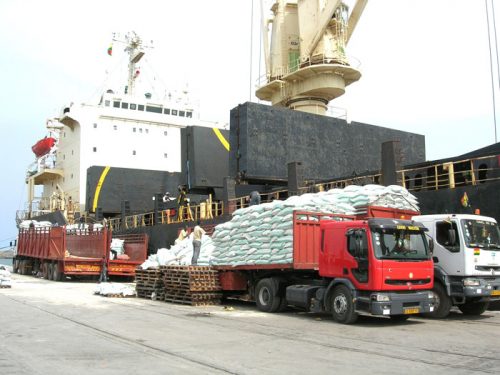In a bid to grow the country’s non-traditional exports (NTEs), the Ghana Export Promotion Authority (GEPA) has committed to provide more capacity building initiatives for Ghanaian exporters.
The Chief Executive Officer (CEO) of the authority, Dr Afua Asabea Asare, said the ultimate objective was to orientate a substantial number of trained men and women who were actively engaged in businesses in the industrial export product and services value chains countrywide.
At the maiden congregation ceremony of the GEPA Export School in Accra, she said the projected revenue of $25.3 billion by the year 2029 under the National Export Development Strategy (NEDS) hinged on three strategic pillars aimed at breaking the cycle of being an economy providing mainly raw materials and minimal volumes of manufactured goods and services.
She said the third pillar which sought to build and expand the required human capital for industrial export development and marketing would involve upgrading the Export School as an accredited tertiary institution and providing capacity building initiatives for exporters.
“For exports to thrive, excel and succeed, it is important to ensure that they are well resourced in capacity to deliver as expected. In the long term, it is expected that Ghana’s educational system will be re-engineered to reflect the human resource needs of export-oriented industrialization,” she said.
She stated that the bleak image of intra-African trade (hovering at a low 15 per cent) required deliberate measures to turn the fortunes around.
“It is expected that graduates of the Export School will be capable of transforming Ghana’s natural resources and raw commodities into manufactured economic wealth,” she said.
International trade
The GEPA Export School faculty is made up of personnel from the industry, the private and public sector agencies, and tertiary level educational institutions.
In collaboration with the International Trade Centre (ITC), Institute of Export and International Trade (IoE&IT), GEPA runs a one-year online Diploma in International Trade to the exporting community.
The programme is recognised as the first fully online operational qualification for trade professionals to be designed specifically for the Ghanaian context, providing participants with detailed knowledge of all the principles, procedures and documentations required for a successful career in international trade.
As part of the learning modules, the partners have in place industrial study tours for course participants which help to bridge the gap between the classroom and the real working world.
Institutional support
For his part, the Deputy Minister of Trade and Industry, Herbert Krampah, said the government continued to engage the productive sectors of the economy by rolling out programmes to provide support for institutions that had the potential to spur growth.
An important one he mentioned was the NEDS which aimed to build the value chains to grow the export base of the economy.
He, therefore, said the country should be able to build the linkages — the value chains to be able to build an ecosystem of exports.
“Persons such as you who are graduating from the export school should be mindful of industrial strategies. You are graduating at a time when we are engaging the productive sectors of our economy and so it is for you to recognise the extra responsibility you carry because you are a pioneering class that is going to be a bedrock for a long time to come,” he said.
The Head of Learning Programme at the ITC, Shaun Lake, said Ghana, like others in the region, needed the right human capital to be able to take advantage of the Africa Continental Free Trade Area (AfCFTA).
“There are opportunities available under the AfCFTA and to be able to access these new single market opportunities I will advise exporters to develop new trade roadmaps for their businesses while they take advantage of the export school to learn key concepts covered in the extended export training,” he said.







